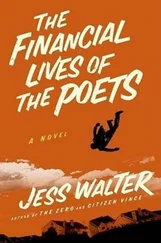Jess Walter - Land Of The Blind
Здесь есть возможность читать онлайн «Jess Walter - Land Of The Blind» весь текст электронной книги совершенно бесплатно (целиком полную версию без сокращений). В некоторых случаях можно слушать аудио, скачать через торрент в формате fb2 и присутствует краткое содержание. Жанр: Детектив, на английском языке. Описание произведения, (предисловие) а так же отзывы посетителей доступны на портале библиотеки ЛибКат.
- Название:Land Of The Blind
- Автор:
- Жанр:
- Год:неизвестен
- ISBN:нет данных
- Рейтинг книги:3 / 5. Голосов: 1
-
Избранное:Добавить в избранное
- Отзывы:
-
Ваша оценка:
- 60
- 1
- 2
- 3
- 4
- 5
Land Of The Blind: краткое содержание, описание и аннотация
Предлагаем к чтению аннотацию, описание, краткое содержание или предисловие (зависит от того, что написал сам автор книги «Land Of The Blind»). Если вы не нашли необходимую информацию о книге — напишите в комментариях, мы постараемся отыскать её.
Land Of The Blind — читать онлайн бесплатно полную книгу (весь текст) целиком
Ниже представлен текст книги, разбитый по страницам. Система сохранения места последней прочитанной страницы, позволяет с удобством читать онлайн бесплатно книгу «Land Of The Blind», без необходимости каждый раз заново искать на чём Вы остановились. Поставьте закладку, и сможете в любой момент перейти на страницу, на которой закончили чтение.
Интервал:
Закладка:
He was the kind of professor dismissed as a lightweight within the academic community (what he used to call "the nest of rarely published and it was heavily rumored that his only book, the eighty-four-page, widely spaced History of Political Progressivism in the Pacific Northwest, was both vanity published and mostly cribbed. But his claim of being the subject of professional jealousy made sense too, because his teaching style made him tremendously popular among his students. He had two speeds: the slow, thoughtful academic – leaning back in his folding chair, a look of deep contemplation on his face, his index finger jammed directly into that bunghole of a chin; and the eager spider monkey – springing around the room, climbing on the backs of chairs, sitting on desks and tables, folding his legs over, crouching a few inches from our faces, and otherwise artificially engaging us with movement so as to agitate us into some measure of intellectual curiosity. He broke the spider monkey out when our energy flagged, which was often, and I always thought his motivation was a magician's motivation, creating a flourish with his left hand so that we wouldn't notice him reaching his right into his sleeve, creating a small explosion to hide the doves he pulled from offstage, creating a ruckus with his body to disguise the dexterity of his mind.
I had declared political science as my major the spring before and this was one of my first upper-level classes – filled with thirty students, many of them, like me, former high school student body presidents and DECA club parliamentarians, Eagle Scouts and Daughters of the American Revolution, students who had always run for things and run things, future wonks and activists and candidates. But I must say, as a group, we were not the most dynamic thinkers in the world. Most of us achieved without thinking, earning A's through rote and habit. Still, we expected to run for all manner of offices in the future and to win, to rise effortlessly to the top of whatever worlds we chose.
Dr. Stanton taught Principles of Government more like a philosophy class than a government class. He started with Moses and the idea of a lawgiver, and was supposed to continue through the Greeks to the Romans, Cicero and Seneca; Saints Augustine and Thomas More; through Rousseau, Thomas Paine, and de Tocqueville; Hobbes, Locke, and Marx; Thoreau and Malcolm X. But Dr. Stanton was far more interested in antiquity, and he rarely made it much further than the Romans, or occasionally the saints, sometimes summing up four centuries of political thought with one day's lecture: "And Thoreau's Civil Disobedience leads us into Gandhi, and of course Dr. King. Any questions?"
So when I returned we were still on the Greeks, Dr. Stanton's favorites, the Big Three: Socrates, Plato, and Aristotle. But he was low key on this day and I drifted in and out of the class, my eyes stinging, my mind wandering, sloughing along and kicking aluminum cans down the road.
That's when it happened. I hesitate to qualify it, to explain it away as a religious moment or a realization or anything else, because it simply is it – a flash, an awakening.
It occurred at 11:48 a.m., two minutes before the end of class on November 29, 1985, on one of those sunny fall days – the last of the season, as it turned out – that make you feel itchy and bored, like a nine-year-old two hours from recess. Dr. Stanton was talking about Plato's Republic, specifically the section in which Plato has Socrates propose that "until philosophers are kings… cities will have no rest from their evils – no, nor the human race." He was sprawled across his desk, on his side, his legs entwined like sleeping lovers. He was nudging us toward the ramifications of the philosopher-king, but like everything the Big Greeks posited, like everything we learned, we filtered it through minds ruined by television. So my classmates fixated on whether a dreamy, goatee-wearing, dope-smoking nihilist in a microbus – Shaggy from Scooby-Doo – would be able to lower the deficit. Dr. Stanton grew frustrated with the flatness of our thinking and our halting "um" and "like" dialogue, until one of my classmates said, "I don't get what Pluto means," at which point Dr. Stanton leapt off the desk, landed on his feet, yelped, sprang into the air, and windmilled his arms, performing the wild finale to all his classroom magic tricks. "Read book seven!" he screamed. "Now!"
I turned gingerly to book VII of The Republic and began reading. It started as dully as the rest, with an allegory so elaborate and unlikely I had trouble following it: Plato had Socrates propose a deep cave in which prisoners were raised from birth. In this cave, the prisoners could see neither the sun nor anything else of the outside world; the only light came from a fire burning far above and behind them, so that they saw only the shadows of things on the wall, not the things themselves. "The prisoners," Plato wrote, "would believe that the truth is nothing other than the shadows."
Of course, I'm hardly the first student to be struck by Plato's simple ontology, to make the short leap of imagining my life as a cave, society as empty and illusory, and all that I had been conditioned to want as nothing more than fancy lies. Success, fame, money, women? Shadows. Just shadows.
But if my epiphany was that of a million other disaffected, twenty-one-year-old state school philosophers, it was also that of a young man who had just buried his brother, and I must say – I went a little crazy that day. Behind me, the sun slanted through a window in the classroom and bits of dust danced in its light, a Milky Way of mites and bits and loose particles. How can we still pretend that heaven is up there when whole universes – tiny heavens and hells – can exist in a single beam of sunlight.
"Mr. Mason?" Dr. Stanton stepped toward me, and as I looked up from the sunlight to him I felt myself passing, as Plato said, from one realm to the next, from belief to knowledge. Even now I can't say just what it meant except that I was overwhelmed, a parched man suddenly up to his knees in cool water.
"Mr. Mason?" Dr. Stanton asked again.
For the first time in my life I could see. Or I was blinded. Or there's no difference. I slapped my head. The other students looked up at me.
"I don't-" I cast around, looking at the ruffled paperback of The Republic, at the students around me, just like me, dreaming our stupid little dreams, competing and succeeding and living and dying by rules that we didn't make up, rules that made no sense. I reached into the sunlight. Nothing was there.
"What is it, Mr. Mason?"
"I don't-" And I saw myself on Empire Road, that narrow gash of houses, that stretch of failure – the cruelty of Pete Decker at one end, the frailty of Eli Boyle at the other. That would always be my universe, my galaxy of dust in my beam of sunlight. Tears streamed from my eyes-the bad and the good. Grief is a release and-
"Mr. Mason?" Dr. Stanton said. "What is it?"
"I don't-" Every dream is an escape.
"Mr. Mason!"
The really shitty thing is this: When someone dies, you never get to see him again. Never. How can you possibly deal with the unfairness of that? How can you deal with the death of the best person you know, the death of everything true and good?
I looked up at Dr. Stanton. "I don't-" I wiped my eyes. "I don't believe in God."
4
What I meant to accomplish with this confession was not a recounting of the grief-induced, sophomoric insights (though technically I was a junior) that I had in college but something more, something transcendent.
I am a failure even at being sad.
Читать дальшеИнтервал:
Закладка:
Похожие книги на «Land Of The Blind»
Представляем Вашему вниманию похожие книги на «Land Of The Blind» списком для выбора. Мы отобрали схожую по названию и смыслу литературу в надежде предоставить читателям больше вариантов отыскать новые, интересные, ещё непрочитанные произведения.
Обсуждение, отзывы о книге «Land Of The Blind» и просто собственные мнения читателей. Оставьте ваши комментарии, напишите, что Вы думаете о произведении, его смысле или главных героях. Укажите что конкретно понравилось, а что нет, и почему Вы так считаете.











